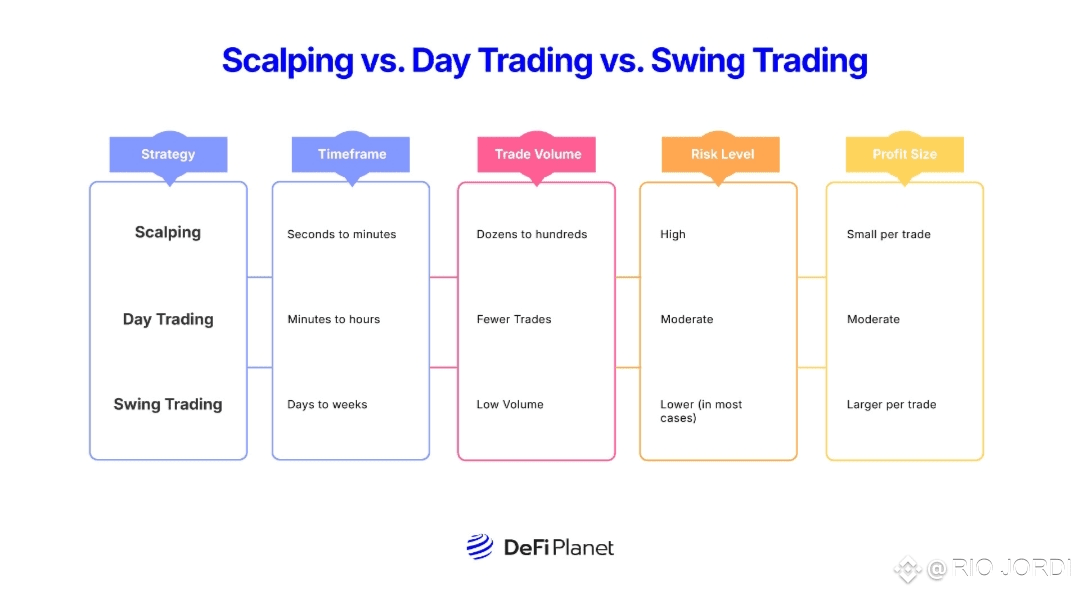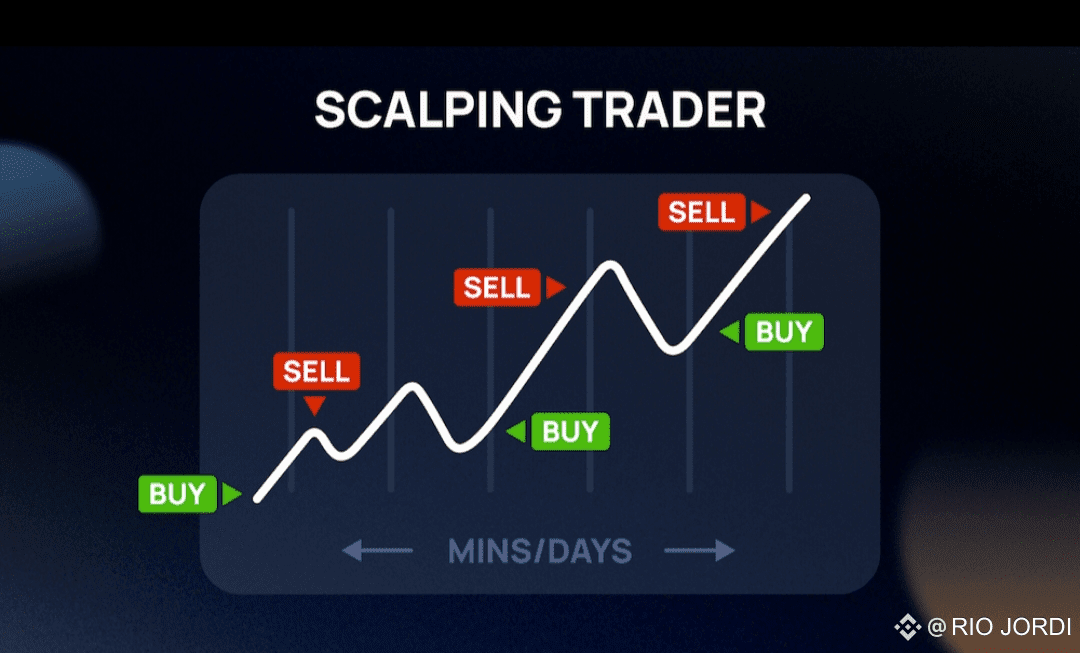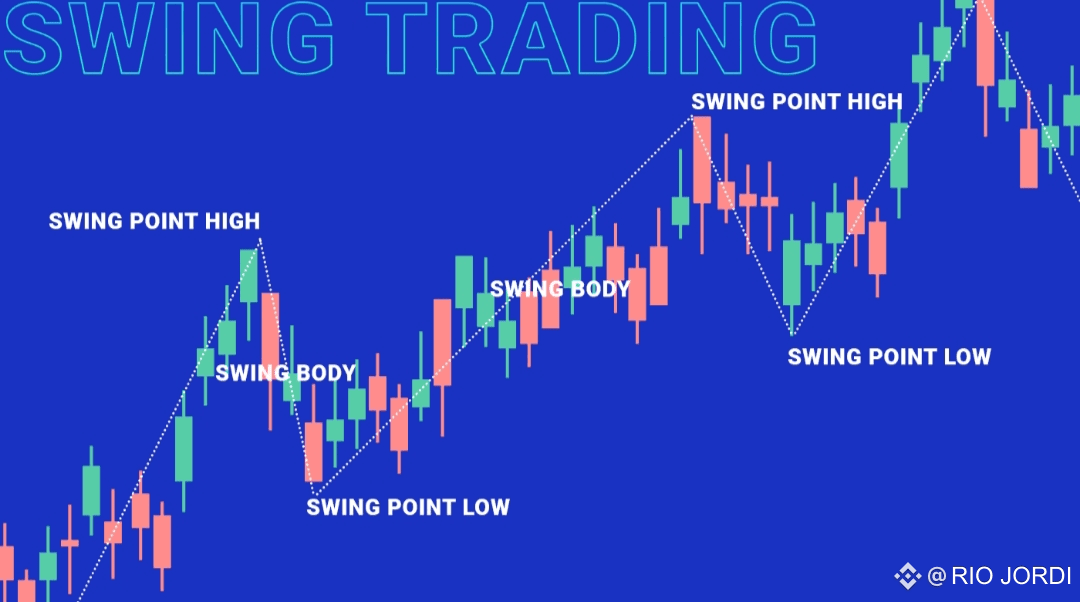> “In crypto, timing isn’t everything — it’s the only thing.”

Whether you're in it for the quick flips or longer moves, understanding the difference between scalping and swing trading can make or break your gains.
Let’s break them down — with real examples, indicators, and strategies.
---

⚡ What Is Scalping in Crypto?
Scalping is a short-term trading strategy that aims to profit from small price moves — usually over minutes or hours.
✅ Pros:
High trade frequency = more opportunities
Perfect for high-volatility coins
Can be automated (bots/alerts)
❌ Cons:
Requires full attention & fast reactions
High fees if done on spot (best on Binance Futures)
Emotionally draining
---
🔧 Best Indicators for Scalping:
VWAP (Volume Weighted Average Price)
Bollinger Bands
MACD (crossovers)
Stochastic RSI
1-min to 15-min timeframes
---
🧠 Real Scalping Strategy: $PEPE/USDT Example
Chart Setup: 1-min candles, VWAP + Stochastic RSI
Scenario:
$PEPE drops below VWAP on low volume
RSI touches oversold (<20)
Quick scalp entry triggered with tight stop-loss (0.5%)
Entry: $0.00000120
TP: $0.00000126
SL: $0.00000118
Leverage: 10x
R/R: 3:1
⏱ Time in trade: 7 minutes
✅ Scalped 5% move = 50% gain on 10x leverage.
---

📈 What Is Swing Trading?
Swing trading targets larger price moves over days to weeks. It’s perfect for catching trend reversals, breakouts, or continuation patterns.
✅ Pros:
Less screen time than scalping
More room to ride big moves
Lower stress when planned properly
❌ Cons:
Requires patience and discipline
Risk of overnight volatility
Trades can stagnate
---
🔧 Best Indicators for Swing Trading:
Daily/4h Timeframe
200 EMA + 50 EMA
MACD Histogram
RSI Divergence
Fibonacci Retracement
Volume Profile
---
📊 Real Swing Setup: $ETH/USDT Example
Chart Setup: 4h timeframe, MACD + RSI + Fib
Scenario:
$ETH retraces to the 0.618 Fibonacci level
MACD crosses bullish
RSI forms bullish divergence
Previous support zone confirmed
Entry: $3,420
TP1: $3,660
TP2: $3,880
SL: $3,300
Leverage: 3–5x
R/R: ~2.5:1
⏱ Holding Time: 3–5 days
📈 Outcome: ~12–14% move = 36–50% on 3–5x leverage.
---
🛠️ Tips to Strengthen Both Strategies
1. Plan before you enter: Always define your entry, stop-loss, and targets.
2. Use alerts: Set alerts on key levels using TradingView or Binance apps.
3. Don’t overleverage: Use lower leverage with swing trades (3–5x), higher leverage only for low-risk scalp setups.
4. Journal your trades: Track wins/losses and learn from your setups.
5. Backtest your strategy on historical charts before going live.
---
⚠️ Key Warnings
Don’t scalp low-volume coins — slippage kills.
Swing trades require strong confirmation, not just vibes.
Always calculate risk-to-reward (R/R) before entering a position.
Protect capital — even the best traders lose 40–50% of the time.
---
💬 Final Thought
Scalping is for the fast and focused.
Swing trading is for the patient and strategic.
Master both,
and you’ll be prepared to handle any market condition.
> Which one fits your style — quick-hit scalping or deep swing plays?
Let us know in the comments & share your favorite indicators!
#CryptoTips
$ETH #cryptoeducation #CryptoStrategies #BinanceFutures #Bitcoin #Ethereum